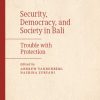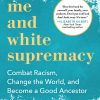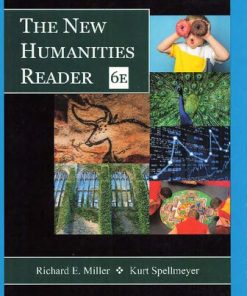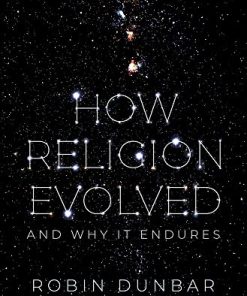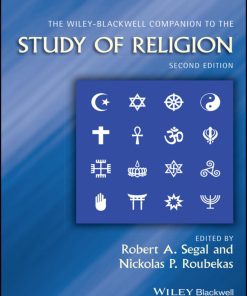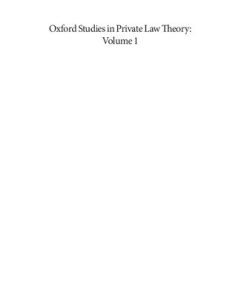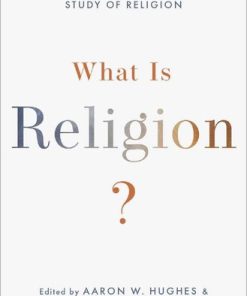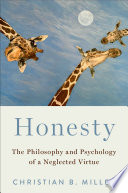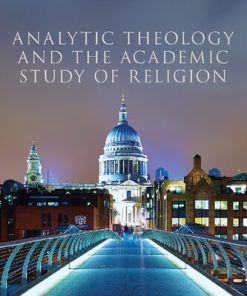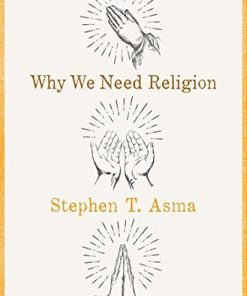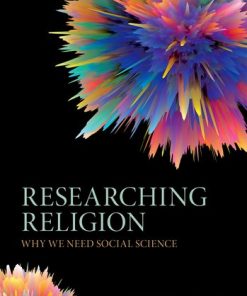Why Study Religion? 1st Edition Richard B. Miller
$50.00 Original price was: $50.00.$25.00Current price is: $25.00.
Why Study Religion? – Ebook Instant Download/Delivery ISBN(s): 9780197566817,9780197566824,9780197566831,0197566812,0197566820,0197566839
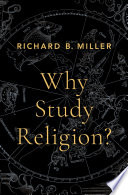
Product details:
- ISBN-10 : 0197566812
- ISBN-13 : 978-0197566817
- Author(s): Richard B. Miller
Can the study of religion be justified? Scholarship in religion, especially work in “theory and method,” is preoccupied with matters of research procedure and thus inarticulate about the goals that motivate scholarship in the field. For that reason, the field suffers from a crisis of rationale. Richard B. Miller identifies six prevailing methodologies in the field, and then offers an alternative framework for thinking about the purposes of the discipline. Shadowing these various methodologies, he notes, is a Weberian scientific ideal for studying religion, one that aspires to value-neutrality. This ideal fortifies a “regime of truth” that undercuts efforts to think normatively and teleologically about the field’s purpose and value. Miller’s alternative framework, Critical Humanism, theorizes about the ends rather than the means of humanistic scholarship.
Why Study Religion? offers an account of humanistic inquiry that is held together by four values: Post-critical Reasoning, Social Criticism, Cross-cultural Fluency, and Environmental Responsibility. Ordered to such purposes, Miller argues, scholars of religion can relax their commitment to matters of methodological procedure and advocate for the value of studying religion. The future of religious studies will depend on how well it can articulate its goals as a basis for motivating scholarship in the field.
Table contents:
I. A Crisis of Rationale
1. On Justifying the Study of Religion
2. The Ethics of Religious Studies
II. A Regime of Truth
3. Interpretation, Comparison, and the History of Religions: On the historian of religion, Jonathan Z. Smith
4. Scientific Rationality and Causal Explanation: On the naturalism of Donald Wiebe
5. Existential Symbolism and Theological Anthropology: On the Protestant theologian, Paul Tillich
6. Embodied Practice and Materialist Phenomenology: On the sociologist of religion, Manuel A. Vásquez
7. Genealogy, Ideology, and Critical Theory: On Russell T. McCutcheon, Timothy Fitzgerald, and Saba Mahmood
8. Philosophy, Normativity, and Metacriticism: On the philosophers of religion, Stephen S. Bush and Kevin Schilbrack
III. Purposes, Desires, and Critical Humanism
9. Religious Studies and the Values of Critical Humanism
Epilogue: Critical Humanism as a Vocation
Notes
Bibliography
Index
People also search:
why study religion
why study religion map
why study religion essay
why study religion psychologically
why study religion in the 21st century
why study religion and ethics
why study religion youtube
You may also like…
Fiction - Literary Fiction
Uncategorized
How Religion Evolved And Why It Endures 1st edition by Robin Dunbar 0197631836 9780197631836
Religion & Spirituality - Religious Studies
Wiley-Blackwell Companion to the Study of Religion Nickolas P. Roubekas
Jurisprudence & Law
Oxford Studies in Private Law Theory: Volume I Paul B Miller (Editor)
Politics & Philosophy - General & Miscellaneous Philosophy
Honesty: The Philosophy and Psychology of a Neglected Virtue Christian B. Miller
Politics & Philosophy - General & Miscellaneous Philosophy
Religion & Spirituality - Religious Studies
Religion & Spirituality - Religious Studies
Researching Religion: Why We Need Social Science 1st Edition Steve Bruce


